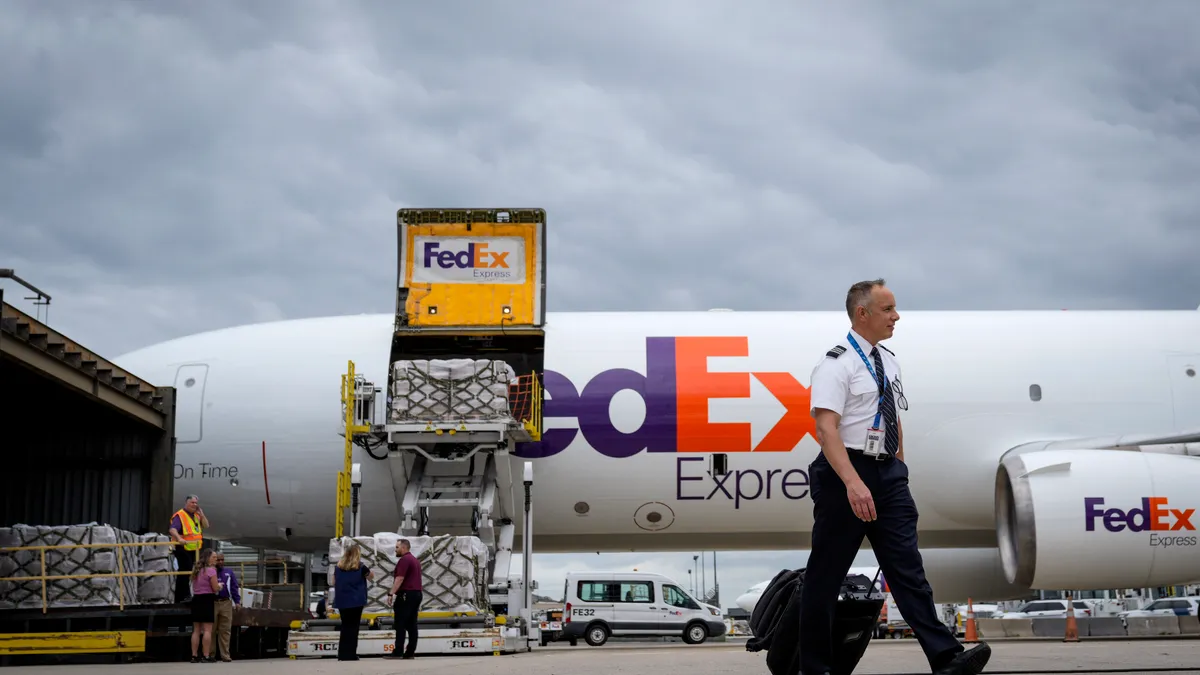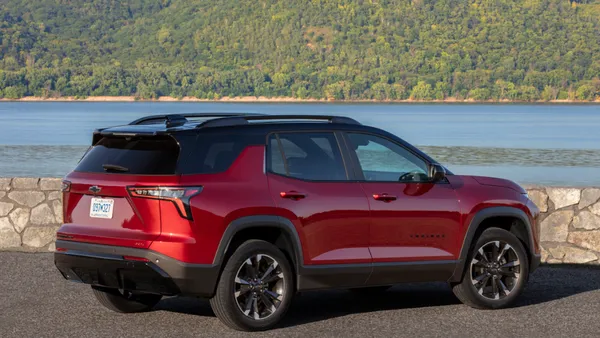Dive Brief:
- President Donald Trump and Japanese Prime Minister Shinzo Abe reached a trade agreement in principle that would eliminate Japanese tariffs on American beef, pork and other agricultural products. The agreement would include Japan purchasing large quantities of American wheat and corn, according to Bloomberg.
- The National Pork Producers Council, the National Cattlemen’s Beef Association and the North American Meat Institute applauded the Trump administration for securing the agreement, according to Bloomberg and MeatingPlace.
- The deal is expected to be signed next month at a United Nations meeting. Similar terms had been previously negotiated as part of a larger multilateral trade deal, which Trump rejected.
Dive Insight:
The U.S. is Japan’s largest beef supplier by volume, so what happens with these two nations' ;policies makes a big difference for farmers and ranchers. This announcement of eradicating duties on American beef comes on the heels of Japan lifting restrictions on beef imports in May, which allows meat from any age animal to enter the country.
Although freer markets will help the industry, the U.S. still shipped $2 billion of beef to Japan last year, when exports were restricted to meat from animals 30 months old and younger. This was the largest quantity since the restrictions were put in place following an outbreak of mad cow disease in 2003.
Pork will also benefit from these changes, and this industry is having a tougher time than cattle. U.S. pork export values in August fell 32% in China, and the overall volume of pork exports was down 1% from last year at 182,372 metric tons, the U.S. Meat Export Federation reported. Like beef, the U.S. is Japan’s largest pork supplier. Until this agreement, it was the only major pork supplier that has not gained tariff relief in Japan.
Having no duties on pork products will be a boon to U.S. farmers who are looking for some relief amid trade wars with other countries that have left them hobbled by double-digit duties.
That’s not to say things for cattlemen have been a cinch. There have been longstanding tariffs on American beef throughout the world for years. However, some of those were recently lifted, including on frozen beef exported to Japan, which expired in 2018, and another from South Korea, which will drop tariffs from 40% in 2012 to 0% in 2026.
Despite these challenges, U.S. beef exports hit a record high last year, thanks to a variety of factors moving in the industry’s favor. U.S. and European Union officials signed a memorandum of understanding Aug. 2 that could almost triple the amount of duty-free U.S. beef allowed annually into the 28 EU member countries during the next seven years.
This new trade agreement, should it go through, would decidedly help both the pork and beef industry. However, it will not do much in the long run to offset the damage likely done by the trade war with China as the Chinese market is far larger than Japan's.
In return for the erasure of duties on these export duties, Trump has agreed to delay any additional levies on Japanese auto exports to the U.S. — Bloomberg reported Japanese officials are lukewarm about the deal since it doesn't address existing tariffs on Japanese autos.













